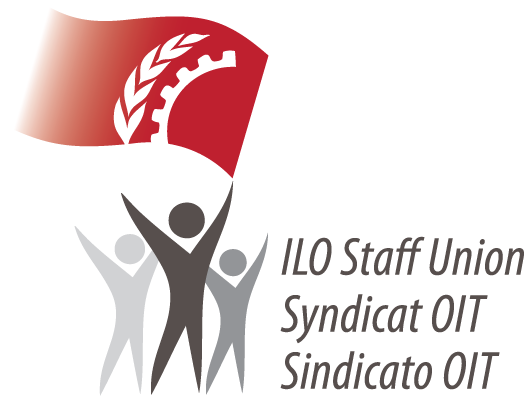
A UN Convention on Older Persons’ Rights: Reinforcing Labour Rights and Intergenerational Solidarity
Category : Message 72 EN , News
On 3 April 2025, the United Nations Human Rights Council (HRC) in Geneva adopted a landmark resolution establishing an intergovernmental working group mandated to draft a legally binding instrument on the human rights of older persons. This historic step marks the first formal move toward a UN Convention specifically dedicated to older persons, responding to years of advocacy and evidence highlighting gaps in international protection frameworks.
The resolution—A/HRC/58/L.24/Rev.1—was adopted with broad support from Member States and reflects growing global recognition that the rights of older persons must be promoted, protected, and fulfilled on an equal basis with others. It follows over a decade of work in New York by the Open-Ended Working Group on Ageing, which documented widespread legal and practical protection gaps.
This development is of clear relevance to all entities committed to human rights,
including the International Labour Organization. The ILO, as a specialized UN agency with a unique normative function, proudly affirms that labour rights are human rights. As such, it is vital to recognize the interdependence and complementarity of human rights standards—civil, political, economic, social, and cultural.
Human rights must cover all dimensions of life, including issues related to personal autonomy, participation, and protection in old age—not only within the sphere of employment. While international labour standards already support the rights of older persons in the world of work, significant gaps remain in the broader human rights landscape, particularly in addressing economic, social, and cultural rights outside formal employment. The adoption of a UN Convention on the Rights of Older Persons would not only reaffirm existing protections under the International Labour Organization’s normative framework but also complement them by filling these critical gaps, offering a more comprehensive and inclusive human rights instrument.
What a Convention Would Bring
A United Nations Convention on the Rights of Older Persons would not only fill an
enduring normative gap in the international human rights system—it would reshape how we value, support, and protect older persons across all dimensions of life.
While the ILO’s international labour standards already offer a robust framework for
rights at work, including social protection and non-discrimination, there remain critical legal and policy gaps in areas beyond employment. These include the rights to health, care, autonomy, participation, and protection from violence and neglect—rights often overlooked or inconsistently protected in existing instruments.
A Convention would:
- Affirm that human rights do not diminish with age, ensuring that older persons
are treated as full rights-holders, not passive recipients of care. - Provide legal clarity and binding obligations, eliminating ambiguity in the application of human rights standards to older age.
- Address structural ageism that undermines the dignity, autonomy, and visibility
of older persons in policy, services, and social life. - Strengthen accountability mechanisms, providing tools for review, improvement,
and recourse. - Promote inclusive development, where older persons can access health, housing, education, technology, care, and legal capacity on equal terms.
- Protect against violence and neglect, with legal recognition of physical, emotional, financial, and institutional abuse.
- Bridge the digital divide, ensuring older persons are not excluded from digital
services and social participation. - Support older migrants, refugees, and stateless persons, often at the intersection of multiple vulnerabilities.
- Promote gender equality, especially for older women who experience lifelong
disadvantage compounded in old age.
Importantly, a Convention would reinforce the relevance of the ILO’s Decent Work
Agenda. It would complement—not duplicate—ILO instruments by extending protection to those outside the labour force, in informal employment, or in later life phases where support, autonomy, and participation are paramount.
Several ILO instruments already provide a robust foundation for advancing older
persons’ rights in the world of work. These include:
- Convention No. 102 on Minimum Standards of Social Security, which outlines
essential protections such as income maintenance and health care; - Recommendation No. 202 on Social Protection Floors, emphasizing universal
access to basic income security and essential health care across the life course; - Convention No. 111 on Discrimination (Employment and Occupation), which
prohibits discrimination in employment based on age and other characteristics; - Recommendation No. 162 concerning Older Workers, which encourages policies promoting active ageing and continued employment;
- Conventions Nos. 155 and 187 on Occupational Safety and Health, which address the need for safe working environments, particularly important for older workers who may face increased vulnerability;
- Convention No. 122 on Employment Policy, promoting access to full, productive, and freely chosen employment regardless of age;
- Convention No. 158 on Termination of Employment, which provides safeguards against arbitrary or unjust dismissal, relevant to older persons facing age-related bias in job retention.
Together, these standards form a comprehensive policy framework aligned with the
human rights-based approach of the emerging Convention.
A Platform for Social Justice and Sustainable Development By 2050, persons aged 65 and older will represent nearly 17% of the world’s population.
Older workers are increasingly active in both formal and informal labour markets and face challenges related to age discrimination, unsafe working conditions, income insecurity, and inadequate social protection. Upholding their rights contributes to social justice, poverty reduction, and intergenerational solidarity.
The ILO’s own principles of decent work—including fair wages, non-discrimination, safe working environments, and access to adequate social security—are integral to advancing the rights and dignity of older persons. A UN Convention will complement them in a coherent global human rights framework.
Beyond its legal and technical significance, the Human Rights Council’s decision sends a powerful political message: the human rights of older persons matter, and addressing ageism and exclusion is a shared responsibility. The process now underway to draft the Convention offers a chance to deepen synergies across the UN system, including with ILO’s normative and technical work.
This step forward is not only a matter of human rights—it is a commitment to social justice, respect, and intergenerational solidarity that benefits all members of society, now and in the future.
Alejandro Bonilla Garcia
Geneva, June 2025
 The Section of Former Officials of the ILO
The Section of Former Officials of the ILO
